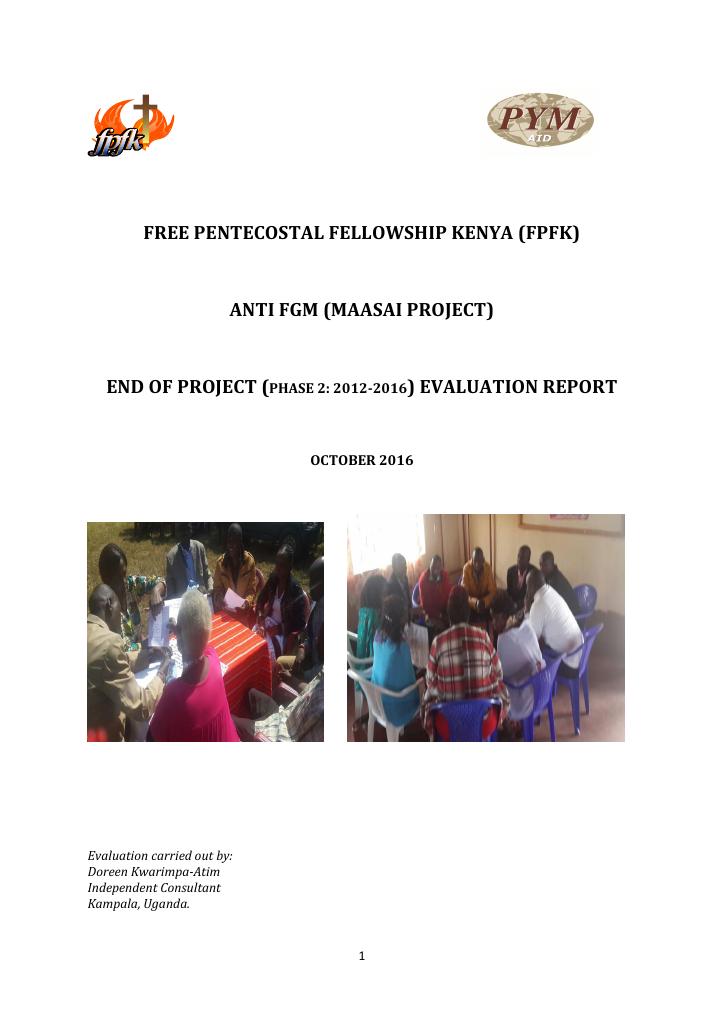Evaluering
Anti FGM (Maasai project) End of project (Phase 2 2012-2016) Evaluation report
During the period 2006 to 2016 one of the projects implemented by FPFK was the Ant-FGM project which focused on identifying strategies for effective elimination of the harmful traditional practice of girl circumcision and subsequent early and forced marriages. This project was carried out in areas predominantly occupied by the Maasai people where FGM is a deeply ingrained cultural practice. FPFK as an institution believes that whereas the culture of the Maasai people should be respected, there was need to address those aspects that not only violated girls and women rights but had also hindered the community from achieving development goals such as education for the girls and women. Based on this situation FPFK implemented the FGM project with the purpose of mobilizing local churches in the Southern region of Kenya to advocate for the rights of Maasai girls and women with a view to stop the practice of FGM and subsequent early and forced marriages. The project was implemented in Kajiado, Narok, Oloitokitok and TransMara areas of the Southern rift region of Kenya. At the end of the 2nd phase of project implementation FPFK carried out an end of phase final evaluation which aimed at assessing the impact of the project and determining the way forward regarding project sustainability and management after external financial support. While the evaluation made reference to the 1st phase of the project, it focused mainly on the 2nd phase. Specifically, the evaluation had three main objectives which included; assessing impact and performance; project design, relevance and sustainability and identify key lessons and implications for the way forward.
